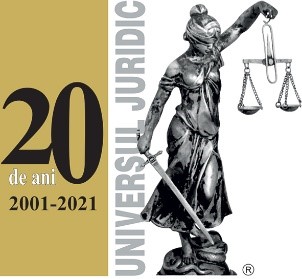Rolul activ al judecătorului în identificarea şi calificarea actelor şi faptelor deduse judecăţii. Câteva consideraţii
Cuvinte cheie:
the role of the judge, finding out the truth, invoking ex officio, reasons of fact, reasons of law, judgeRezumat
The architecture of the civil process is a variable one: the role of the judge in finding out the truth, configured by art. 22 C. pr. civ., acts in accordance with other fundamental principles applicable to jurisdictional activity, its forms and mutations being, in most cases, unpredictable. In this regard, the legislator drew on the French Code of Civil Procedure, in line with the doctrine, in order to set up a legislative solution flexible enough to allow the simultaneous application of the principle of availability, which reserves the right to set the limits of the procedural framework, and that of finding out the truth, in which the judge, in the exercise of his judicial function, has the main role. How active this role should be is probably a question as old as the procedure or the notion of process. The article analyses a series of theories present in Romanian and French doctrine and tries to delimit a series of concepts, in an attempt to re discuss some of the “classic” sub themes of a traditional debates on the limits of the active role of the judge in the classification or reclassification of acts and facts brought before the court.
Publicat
Versiuni
- 24-04-2023 (2)
- 13-09-2022 (1)









